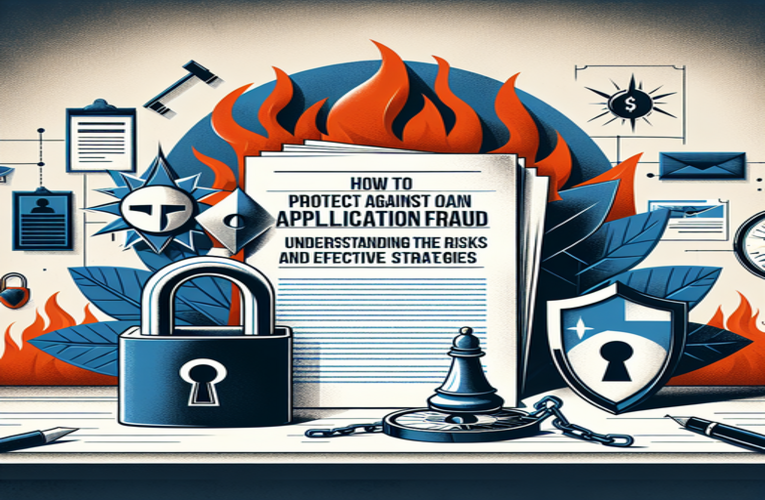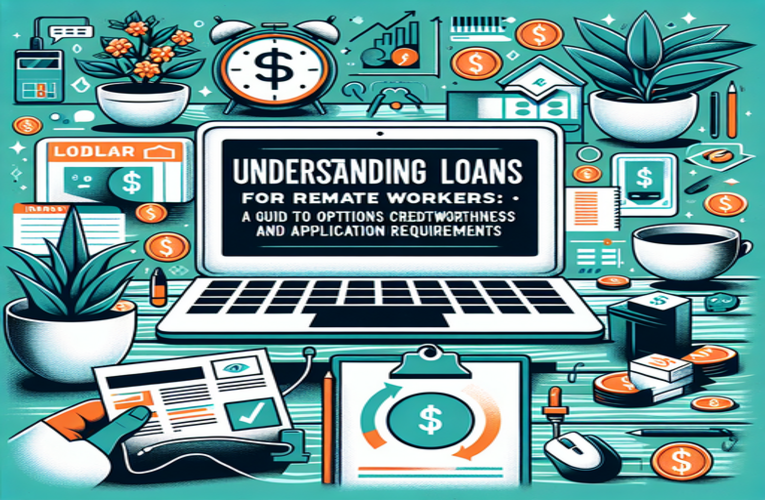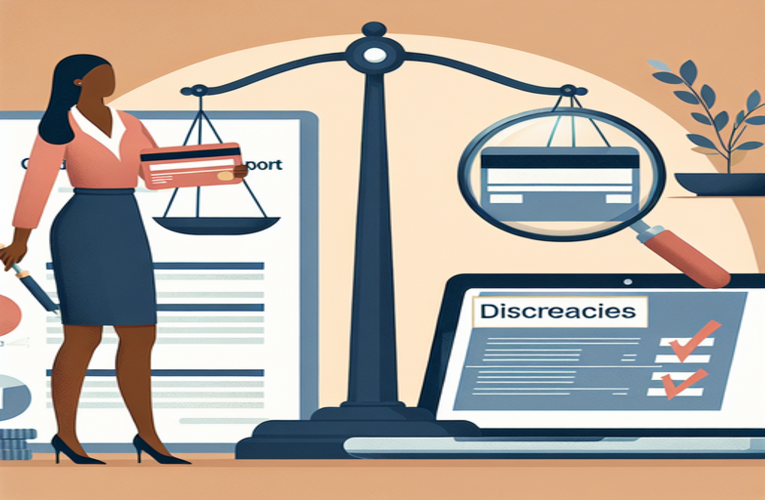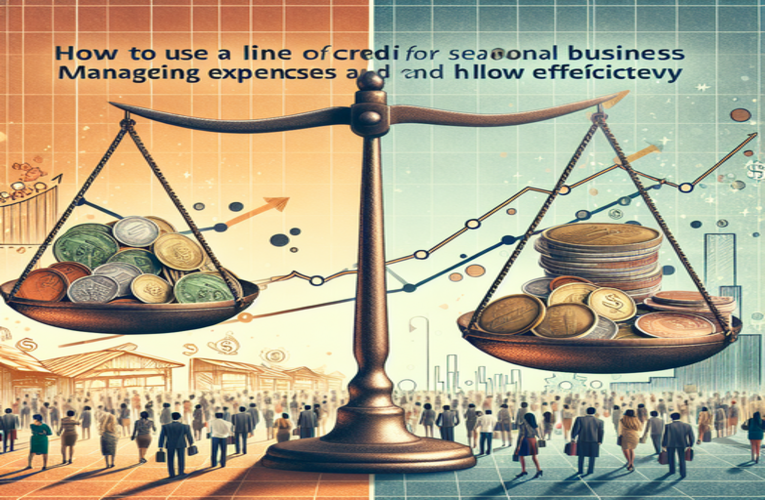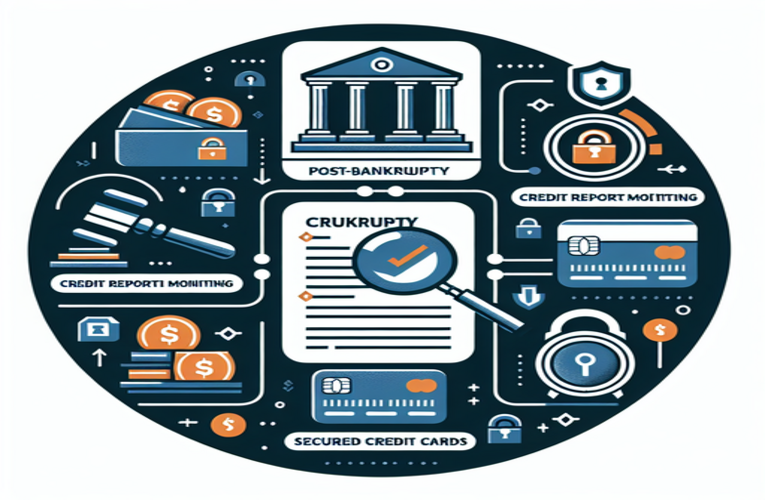Factors affecting personal loan interest rates: key influences and considerations
Navigating the world of personal loans can be overwhelming, especially when it comes to understanding interest rates. These rates significantly impact your overall borrowing costs and, consequently, your financial health. In this article, we will explore the various factors that influence personal loan interest rates, from your credit score to the broader economic environment. Understanding these determinants will empower you to make better financial decisions, enabling you to secure more favorable loan terms.
In this guide, we will cover:
- The pivotal role of your credit score in determining personal loan interest rates
- The implications of loan duration on your interest costs
- How the economic environment and federal funds rates shape borrowing expenses
- Key strategies for improving your financial profile to secure lower personal loan rates
By understanding these elements and utilizing helpful tools like loan calculators, you can confidently approach lenders and negotiate better terms. Join us as we delve into the crucial variables affecting personal loan interest rates and equip yourself with the knowledge to make informed borrowing decisions.
Table of Contents
Factors affecting personal loan interest rates
When seeking a personal loan, various factors can significantly impact the interest rates offered by lenders. Among these, the most crucial is the credit score—a numerical representation of your creditworthiness. This critical figure provides lenders with insights into your financial responsibility and risk level, directly influencing the terms of your loan, including the interest rates. By understanding the key factors affecting personal loan interest rates, borrowers can take proactive steps to improve their financial profiles and secure more favorable loan conditions.
Key elements influencing interest rates
- Credit Score: The credit score is perhaps the most significant factor affecting personal loan interest rates. Individuals with excellent credit scores (typically 750 and above) are considered low-risk borrowers and can access the most competitive interest rates, often ranging from 5% to 10%. Those with good credit scores between 700 and 749 may find interest rates between 10% and 15%. Conversely, borrowers with fair or poor credit scores (below 650) are viewed as higher risk, resulting in interest rates that can exceed 25% or even lead to loan application rejections. Improving your credit score by paying bills on time, reducing debt levels, and correcting credit report errors can significantly lower the interest rates offered to you.
- Repayment History: Consistent repayment history is a vital component considered by lenders when determining personal loan interest rates. A borrower who has a track record of timely payments on existing debts demonstrates reliability and financial responsibility, which can result in lower interest rates. Late or missed payments, defaults, or accounts sent to collections can negatively impact your credit report, signaling higher risk to lenders. Even a single missed payment in the last two years can significantly affect the interest rates offered. Maintaining a flawless repayment history is essential for securing favorable loan terms.
- Overall Financial Health: Lenders assess your overall financial health, including factors such as income stability, employment history, and debt-to-income (DTI) ratio, to determine your ability to repay the loan. A higher, steady income provides confidence to lenders that you can manage repayments, potentially leading to lower interest rates. The DTI ratio, calculated by dividing your total monthly debt payments by your gross monthly income, indicates how much of your income goes toward debt obligations. A lower DTI ratio (typically below 36%) suggests that you have sufficient income to handle additional debt, which can positively influence the interest rates offered on personal loans. Improving your financial health by increasing your income or reducing existing debts can enhance your loan terms.
Impact of credit scores
The following table illustrates how different credit score ranges correspond to typical interest rates and their potential impact on borrowing costs:
| Credit Score Range | Credit Rating | Typical Interest Rate | Potential Impact |
|---|---|---|---|
| 750 and above | Excellent | 5% to 10% | Very low borrowing costs, best loan terms |
| 700 to 749 | Good | 10% to 15% | Lower borrowing costs |
| 650 to 699 | Fair | 15% to 25% | Moderate borrowing costs |
| 600 to 649 | Poor | 25% to 35% | Higher borrowing costs, limited loan options |
| Below 600 | Very Poor | Over 35% | Very high borrowing costs, may not qualify for loans |
Borrowers with higher credit scores benefit from lower interest rates and better loan terms, reducing the overall cost of borrowing. Those with lower credit scores face higher interest rates, leading to increased total repayment amounts and monthly payments. Understanding where you fall within these credit score ranges can help you anticipate the interest rates lenders may offer and take steps to improve your credit score for better loan options.
Additional considerations
- Relationship with Lender: Maintaining a strong relationship with your bank or financial institution can positively affect the interest rates offered on personal loans. If you have existing accounts, such as savings or checking accounts, credit cards, or previous loans with a history of responsible borrowing, lenders may consider you a valued customer and offer loyalty discounts or preferential rates. Building rapport with your lenders and demonstrating financial reliability can enhance your bargaining power when negotiating loan terms.
- Utilizing Online Loan Calculators: Online personal loan calculators are valuable tools that allow borrowers to estimate monthly payments, total interest costs, and repayment schedules based on different loan amounts, interest rates, and terms. By inputting various scenarios, you can see how changes in interest rates—affected by your credit score and other factors—impact your monthly budget and total repayment. This information helps you make informed decisions about loan affordability and plan strategies to improve your loan terms, such as enhancing your credit score before applying.
- Loan Amount and Purpose: The amount you wish to borrow and the purpose of the loan can also influence interest rates. Larger loan amounts may come with higher interest rates due to increased risk to the lender. Additionally, some lenders offer better rates for loans used for specific purposes, such as home improvements or debt consolidation, compared to general-purpose loans. Clearly articulating the use of funds and borrowing only what you need can help secure more favorable rates.
Examining the impact of loan duration on interest rates for personal loans
When considering personal loans, it’s crucial to understand how the loan term—or duration—affects the interest rates and overall cost of borrowing. The loan duration is a significant factor affecting personal loan interest rates. Generally, shorter loan terms result in higher monthly payments because the loan amount must be repaid over a shorter period. However, they often come with lower interest rates and reduce the total interest paid over the life of the loan. Conversely, longer loan terms may offer smaller monthly payments, making them seem more affordable in the short term, but they usually carry higher interest rates, leading to a substantial increase in the total interest paid over the loan’s duration. Borrowers must carefully evaluate the trade-offs between monthly payment amounts and total borrowing costs when selecting a loan term.
Factors to consider
- Loan Duration: The length of your loan term is a critical factor affecting personal loan interest rates. Shorter loan terms typically come with lower interest rates, reducing the total amount of interest paid. However, this means higher monthly payments, which may strain your budget. Longer loan terms spread out repayments, leading to lower monthly payments but often result in higher interest rates and increased total interest over time. Lenders may charge higher interest rates for longer terms due to the increased risk of default over an extended period. Carefully evaluating your financial capacity to handle monthly payments is essential when deciding on the loan duration.
- Credit Score: As previously mentioned, your credit score significantly influences the interest rate you receive. Lenders perceive borrowers with higher credit scores as lower risk, offering them lower interest rates regardless of the loan duration. In contrast, borrowers with lower credit scores may face higher interest rates, which can be further compounded by choosing longer loan terms. Improving your credit score before applying for a personal loan can help you secure better interest rates over your desired loan term.
- Income Level: Lenders assess your income level to determine your ability to repay the loan. A higher and stable income can enhance your creditworthiness, leading to more favorable interest rates and possibly enabling you to choose a shorter loan term with higher monthly payments. Demonstrating sufficient income assures lenders that you can manage the financial obligations associated with the loan.
- Debt-to-Income Ratio: Your debt-to-income (DTI) ratio reflects the percentage of your income that goes toward paying debts. A lower DTI ratio indicates a healthier financial position, potentially qualifying you for lower interest rates and more flexible loan durations. A high DTI ratio suggests overextension and increases the lender’s perceived risk, possibly leading to higher interest rates and limited loan term options.
- Market Conditions: Broader economic factors, such as inflation rates, the federal funds rate, and overall market liquidity, influence personal loan interest rates. During periods of economic growth, interest rates may rise to curb inflation, affecting the rates lenders offer. Conversely, in economic downturns, interest rates may decrease to stimulate borrowing and spending. These market conditions can impact both the interest rates available and the terms lenders are willing to offer. Staying informed about current economic trends can help you time your loan application to secure better rates.
Hypothetical loan scenario
Consider a personal loan of $10,000. Depending on the loan term and interest rate, the total repayment amount and monthly payments can vary significantly:
| Loan Term | Interest Rate | Monthly Payment | Total Repayment |
|---|---|---|---|
| 5 Years (60 months) | 10% | $212.47 | $12,748.20 |
| 10 Years (120 months) | 12% | $143.48 | $17,217.60 |
This example underscores the importance of carefully considering loan duration. While longer terms reduce monthly payments, they significantly increase the total cost due to higher interest rates and more extended repayment periods. Borrowers should balance their ability to meet monthly payments with the desire to minimize total borrowing costs.
Lender evaluation criteria
- Credit Score: Borrowers with lower credit scores may not only face higher interest rates but also may be limited to shorter loan terms due to lenders’ concerns about long-term repayment ability. Improving your credit score can expand your options for both interest rates and loan durations.
- Income Level: A higher and stable income assures lenders of your capacity to meet monthly payments, particularly for shorter loan terms with higher payments. It can also lead to more favorable interest rates, as lenders perceive less risk of default.
- Debt-to-Income Ratio: Lenders prefer borrowers with a lower debt-to-income ratio, indicating that a smaller portion of their income is dedicated to existing debts. A healthy DTI ratio suggests you can manage additional debt responsibly, potentially leading to better interest rates and more flexible loan terms.
Additionally, it’s important to recognize that lender evaluation criteria are also influenced by broader market conditions. Economic variables, such as inflation rates, changes in the federal funds rate set by the Federal Reserve, and overall economic growth, can impact lenders’ interest rate offerings and loan terms. Understanding these economic trends can help you time your loan application more effectively. Staying informed about economic conditions is a key factor affecting personal loan interest rates and can help minimize your overall costs.
Influence of federal funds rates on personal loan interest
The federal funds rate is the interest rate at which depository institutions lend balances to each other overnight. Set by the Federal Reserve, it influences nearly all other interest rates in the U.S. economy, including those for personal loans. When the Federal Reserve raises the federal funds rate, borrowing becomes more expensive for banks, and these increased costs are often passed on to consumers in the form of higher personal loan interest rates. Conversely, when the federal funds rate is lowered, personal loan rates may decrease, making borrowing more affordable. Understanding this connection between federal funds rates and personal loan interest rates is vital for borrowers, as timing your loan application during periods of lower rates can result in significant savings over the life of your loan.
- Federal Funds Rate: As the foundational interest rate in the economy, changes to the federal funds rate can influence a range of financial products. A rise in this rate can lead to increased costs for borrowing, including personal loans, mortgages, and credit cards.
- Personal Loans: Personal loans are typically unsecured, meaning they are not backed by collateral. Because of this increased risk to lenders, personal loan interest rates are often higher than secured loans. Fluctuations in the federal funds rate can further impact these interest rates, making it important for borrowers to monitor economic policy changes.
Additional factors influencing personal loan interest rates
Personal loan interest rates are affected by several factors:
- Credit Score: A higher credit score indicates to lenders that you are a low-risk borrower, which can result in lower interest rates.
- Debt-to-Income Ratio: Lenders assess your DTI ratio to evaluate your ability to manage additional debt. A lower DTI ratio suggests that you are not overly burdened by existing debt, increasing lender confidence and potentially leading to better interest rates.
- Market Dynamics: Market conditions, such as economic growth, employment rates, and consumer demand, can influence interest rates. Lenders may adjust rates based on economic forecasts and trends to balance their risk and profitability.
The impact of economic policies
Recent economic policies provide clear examples of how changes in the federal funds rate impact personal loan interest rates. In early 2023, in response to rising inflation, the Federal Reserve implemented a series of interest rate hikes. These actions led to increases in the federal funds rate, which in turn caused personal loan interest rates to rise. As a result, average personal loan interest rates surged to approximately 25.94%, making borrowing more expensive for consumers. Borrowers seeking personal loans during this period faced higher monthly payments and total borrowing costs. This example highlights the importance of staying informed about economic policies and considering their potential impact on your borrowing plans.
Using tools for informed loan decisions
To make informed decisions about personal loans, borrowers should leverage available resources, such as online loan calculators. These tools allow you to input different loan amounts, interest rates, and loan terms to calculate estimated monthly payments and total repayment amounts. By adjusting variables like the interest rate, which can fluctuate based on federal funds rates and market conditions, you can assess how changes in economic policies might affect your loan. Loan calculators can help you compare different loan scenarios, understand the potential financial impact, and choose a loan structure that aligns with your budget and financial goals.
Furthermore, accessing your credit report, monitoring your credit score, and maintaining a low debt-to-income ratio can enhance your ability to secure favorable interest rates. Staying proactive in managing your financial profile and utilizing these tools empowers you to navigate the personal loan landscape effectively.
Summary
Understanding Personal Loan Interest Rates
Navigating personal loans requires awareness of several key factors that influence personal loan interest rates. Here are the most crucial points from the article:
- Credit Score: Scores of 700+ typically secure interest rates between 10% to 15%, while scores below 650 may face rates exceeding 25%. Maintaining a consistent repayment history can enhance your credit score and lead to more favorable loan rate conditions.
- Loan Duration: Shorter loan terms lead to lower overall interest costs but higher monthly payments, whereas longer terms may reduce monthly payments but increase the total interest paid over the life of the loan.
- Federal Funds Rates: These rates serve as a benchmark for borrowing costs; increases in federal funds rates generally result in higher personal loan interest rates.
- Financial Health: Your income levels and debt-to-income ratio significantly impact the interest rates and loan terms you can secure, as lenders assess your ability to repay.
Practical Tools: Utilize robust loan calculators to evaluate how varying interest rates affect your monthly payments and overall borrowing costs.
By understanding these factors affecting personal loan interest rates, you can make informed decisions, negotiate better loan terms, and ultimately minimize your borrowing costs.
Frequently Asked Questions
How can I obtain a personal loan if I have a low credit score?
If you possess a low credit score and require a personal loan, it’s advisable to take steps to enhance your creditworthiness before seeking a loan. This includes paying off existing debts, consistently paying all bills on time, and reducing new credit inquiries. Additionally, you might consider applying for a loan with a co-signer who has a stronger credit history to help you secure more favorable loan terms and interest rates.
In what ways does my employment status influence my personal loan application?
Lenders generally assess your employment status and job stability when reviewing your personal loan application. Maintaining a steady job with a consistent and reliable income stream can enhance your eligibility for loan approval and may help you qualify for lower interest rates and more favorable loan conditions.
Which types of personal loans are generally easier to qualify for?
Yes, certain personal loan types may be easier to obtain based on your financial situation. Unsecured personal loans typically have stricter qualification criteria, whereas secured loans, which are backed by collateral such as a vehicle or property, often feature more lenient eligibility requirements. Additionally, peer-to-peer lending platforms can provide greater flexibility and may be more accommodating for applicants with lower credit scores or non-traditional credit histories.
Is it possible to negotiate the interest rate on a personal loan?
Yes, you can negotiate the interest rate on your personal loan, particularly if you have an excellent credit score or an established relationship with your lender. To successfully negotiate, ensure you have your financial documents prepared, and be ready to demonstrate your creditworthiness. This can enable you to discuss and potentially secure more favorable interest rates or improved loan terms.
Why is income verification important in the personal loan approval process?
Income verification plays a vital role in the loan approval process as it allows lenders to evaluate your ability to repay the personal loan. Typically, this involves submitting documentation such as pay stubs, tax returns, or bank statements to verify your income level and financial stability. Demonstrating a reliable income source can significantly enhance your loan application’s credibility and improve your chances of approval.
In what ways do market trends affect my personal loan options?
Market trends substantially influence personal loan options, particularly regarding interest rate fluctuations driven by economic factors such as inflation and shifts in federal monetary policies. By staying informed about these market dynamics, you can determine the most advantageous times to apply for a personal loan or refinance existing debt, potentially securing better interest rates and more favorable loan terms.
Why should I use a loan calculator before applying for a personal loan?
Employing a loan calculator before applying for a personal loan offers several advantages. It enables you to estimate your monthly payments based on varying loan amounts, interest rates, and repayment terms. This tool provides a clearer understanding of your financial obligations, assists in comparing different loan options, and facilitates effective budget planning to ensure that the loan fits within your financial strategy.
Is it possible to repay my personal loan early without incurring penalties?
Repaying your personal loan early is contingent on the lender’s policies and the specific loan agreement. Some lenders may impose prepayment penalties for early repayment, while others permit you to pay off the loan ahead of schedule without additional fees. It’s essential to thoroughly review the loan terms and consult with your lender to understand any potential penalties or benefits associated with early loan repayment.
Which factors should I evaluate when searching for the best personal loan?
When searching for the ideal personal loan, it’s important to compare multiple factors. These include interest rates, loan repayment terms, associated fees (such as origination or prepayment fees), and the lender’s customer service ratings. Additionally, assess the lender’s overall reputation, read customer reviews, and consider any supplementary benefits they may provide, such as flexible repayment options or financial counseling services. Taking these aspects into account will help you identify the most suitable and cost-effective personal loan for your needs.
How frequently do personal loan interest rates fluctuate?
Personal loan interest rates can vary regularly, influenced by factors such as prevailing economic trends, adjustments to the federal funds rate, and individual lender policies. These changes can occur in response to shifts in inflation rates, economic growth, and monetary policy decisions. It’s crucial to stay updated on current market conditions to make informed and timely borrowing decisions that align with favorable interest rate environments.

